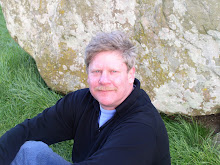Recently, I read an article in The Boston Globe about a local school district that received Federal and State grants for the installation of a wind turbine. The project was roughly $600,000.00 paid mostly from taxpayer monies.
The turbine would provide less then twenty percent (20%) of power for the school, and would amount to a less then $10,000.00 in energy cost savings per year.
Comments from local citizens were overwhelmingly critical of the projected cost and not impressed with the actual savings based on the investment. Questions also were asked about future expenses associated with the turbine, such as maintenance, and how that would be reflected in the overall figures for the short, medium, and long term costs.
Citizens are not objecting to alternative energy and the value to the community and nation. The objection seems to be in "common sense" economics and the apparently lack of it in this particular investment.
I mention this article because, recently I had the exact same discussion with a Connecticut activist and author concerning a school district here in Connecticut, that is also asking local citizens to support using Federal, State, and district taxpayer money for a similar project.
And, the exact same objections have been expressed by members of a different community, in a different state. The objection? Taxpayer dollars used for individual "green" projects that have little or no economic value as a whole.
That said it is important to note that new government energy mandates require Federal, State, and Municipal buildings to incorporate alternative and renewable systems to supplement traditional energy providers.
But tax rebates, both Federal and State, and grants will benefit only those that can afford to buy a system regardless of the technology.
Cash back for clunkers only help the individual that can afford to buy a new car, and the automobile manufacturers that have already received a tremendous amount of government funding.
Take that single school district funding of roughly $600,000.00 and now multiply it by the thousands of school districts across America. The payback is not there, nor is it a smart use of taxpayer dollars.
A more equal way for government taxpayer money to be invested would be to build new transmission lines across America, providing benefit to all Americans.
Energy from the new "energy regions", regardless of technology source, will need new transmission lines to deliver energy across all segments of society, all sharing the return from the nation's alternative energy investment.
Lack of funding has already delayed the Pampa Wind Farm project promoted by T, Boone Pickens. Delays in projects such as Mr. Pickens, only delays the inevitable and raises the overall cost of the (future) project, that is not good money management either.
Americans promoting alternative energy and sustainable living practices can raise their voice and pen and be pro-active by contacting their local and state representatives to support the layout and construction of new (power) transmission lines, from new energy generating resources.
Energy, especially "homegrown" energy, produced by renewable resources, should belong to all Americans, rich, poor, west coast, east coast , north and south. Just as the space program advanced both science and medicine technology, and enriched and continues to enrich the lives of all Americans, our energy policies should also be as far-reaching in thought and as generous in scope.
Brett
Monday, August 3, 2009
Subscribe to:
Post Comments (Atom)










I think this is a very smart post and the information it imparts is critical.
ReplyDeleteAs seductive as the promise, and the operative word here is "promise," of alternative energy can appear, the example of the school receiving excessive funding for what can be seen as little more than an exercise in PR, or in a "debt" owed to local parties, should raise red flags everywhere.
Brett's final point: "Energy, especially "homegrown" energy, produced by renewable resources, should belong to all Americans, rich, poor, west coast, east coast , north and south," is not one to be ignored. And, as in his comments on the "cash for clunkers," program, we have to be vigilant as to where public money is spent, or we will see programs that enrich the few, give advantage to some and ignore the many.
Well done, Brett. Keep up the good work.